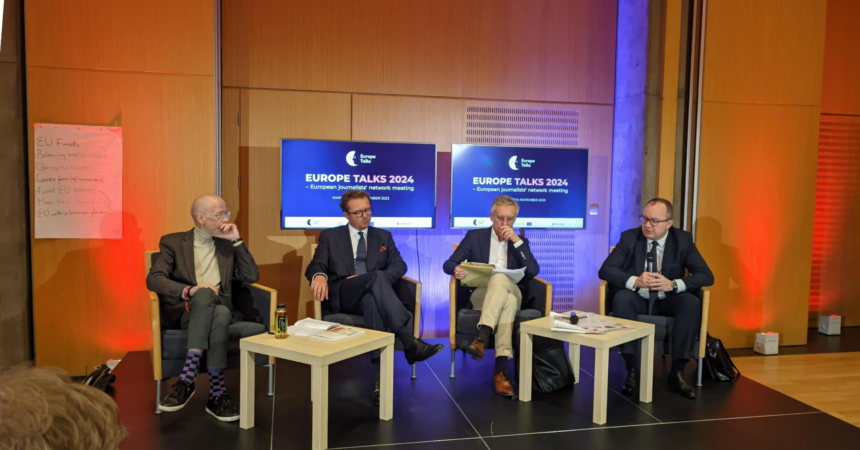Polish media experts on Monday at a conference in Warsaw listed the legal, administrative, and economic methods used by the previous government to strangle independent media, laying bare many similarities to the tactics used by the current government in Malta.
PiS, a national conservative party with a strong anti-EU stance, governed “troublesome” Poland for the last eight years until a coalition of pro-EU parties swept to victory last month on a ticket of restoring democratic standards.
Held at the headquarters of Poland’s largest daily, Gazeta Wyborcza and hosted by EU-funded discussion platform, Europe Talks, Monday’s panel saw a discussion on the importance of a strong journalistic, legal, and civil society presence to challenge the rise of populist and autocratic governments, labelled a “pan-European problem.”
The discussion was held by journalists, ambassadors, legal experts and a newly-elected senator on the same day Polish parliament swore in the coalition party.
One of the new government members, senator-elect Adam Bodnar, explained how PiS employed populist practices and targeted journalists and civil society groups who opposed it through several means.
Bodnar said Poland’s October elections were not fought fairly by the incumbent party, noting how PiS hijacked Poland’s public broadcasting and used public funds for overwhelming promotion of its interests.
Similarly, Malta’s public broadcaster, PBS, has been widely criticised for its one-sided and biased coverage of news items. In addition, Maltese politicians, including Prime Minister Robert Abela, have spent millions of euros of public funds to promote their, or the Labour Party’s agenda.
Nevertheless, PiS lost the election, with Bodnar saying the new coalition party’s job is to “rebuild a state that is accountable to its citizens.”
Panel member Łukasz Lipiński, a journalist with the Polityka weekly, spoke about the former ruling party’s attempts at silencing the free media in Poland, mentioning economic, political, and legal means.
For example, the former ruling party flooded the public broadcaster with funds and stopped buying any advertorial space on independent platforms, pressuring them economically and “distorting” the media landscape.
Additionally, he said it abused tax laws and anti-monopoly laws to silence dissent, along with the wide use of strategic lawsuits against public participation (SLAPPs).
Meanwhile, in Malta, the government has been prolific in using SLAPPs, particularly against The Shift, weaponising legislation to file cases outside of traditional libel suits in what has been dubbed “lawfare.”
Lipiński also noted how the former government politically attacked media freedom by using broadcasters under its control to “proliferate hate speech” against critics. He said it repeatedly denied journalists access to information and attempted to delegitimise them by treating them as opposition party members.
Panel member Michał Wawrykiewicz, an attorney and co-founder of Poland’s Free Courts Initiative, discussed how PiS targeted Poland’s judiciary in the past eight years. He said a third of Poland’s roughly 10,000-strong judiciary had been improperly appointed as the former ruling party “packed the courts with people loyal to politicians.”
While the Maltese judiciary is appointed independently following pressure from the Council of Europe’s Venice Committee, Prime Minister Abela has nevertheless publicly expressed disapproval of some appointments, and the judiciary has remained silent on practices that raise questions about its impartiality.
Panellist and former ambassador Marek Prawda concluded the discussion with a message of hope.
He said that while the former governing party turned Poland into a “troublemaker”, taking advantage of limited EU intervention, the pro-EU coalition’s recent electoral victory is a testament to the fact that “people can make history.”














So long as consensus plays the role that it does in EU decision-making, no quotes are appropriate around “troublemaker”, particularly in the case of Poland, Hungary and Slovakia. Malta would also be more explicitly included in that group of misfits, if it weren’t mere rounding error in the greater scheme of EU affairs. But rest assured, you cannot keep poking the bear as the MLP has and expect to get away with it.